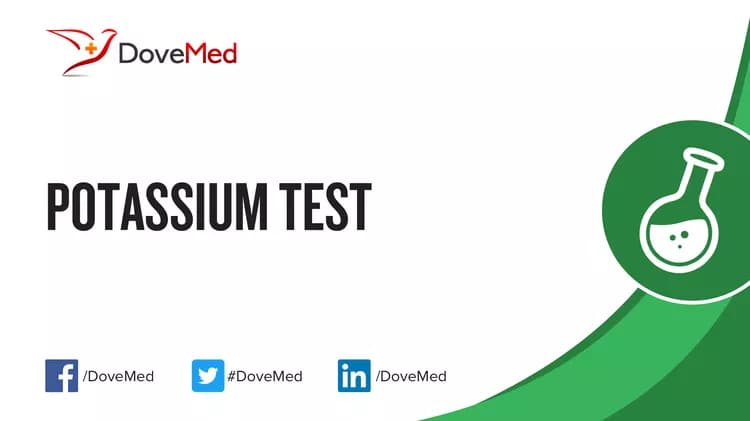What are the other Names for this Test? (Equivalent Terms)
- K Test
- K+ Test
What is Potassium Test? (Background Information)
- Potassium (K) is the most abundant electrolyte inside the cells. It is important to the body’s acid-base, electrical, and hydrostatic stability
- These uses stem from the features of an electrolyte, which are water solubility and electrical conductivity. Certain enzymes also need potassium, in order to function effectively
- Potassium affects the kidneys’ production of ammonia, which acts as an alkalizing proton sponge. High levels of K inhibit ammonia production and acidify blood, while low levels do quite the opposite. The kidneys are also the sites of potassium excretion
- Electrically active organs are particularly sensitive to K levels. Such excitable organs include the brain and muscles, like the heart. Any imbalances in K levels may adversely affect these organs
- A Potassium Test measures the amount of potassium in blood. This test may be conducted either through blood, or through urine
What are the Clinical Indications for performing the Potassium Test?
Following are the clinical indications for performing a Potassium Test:
- As part of a routine exam, to evaluate if the individual is affected by any serious illness
- In order to monitor the effects of diuretic drugs
- Abnormal blood pressure
- Muscle twitches (fasciculation) and spasms
- Muscle fatigue
- Abnormal heart rhythms (arrhythmia)
- Large output of urine (polyuria)
- Small output of urine (oliguria)
- Trauma
How is the Specimen Collected for Potassium Test?
Sample required: Blood or urine
Process: Insertion of a needle into a blood vessel (blood); urine sample is collected in a clean, sterile container.
Preparation required: None
What is the Significance of the Potassium Test Result?
Elevated potassium levels (hyperkalemia) may indicate:
- Acidic blood (acidosis)
- Inability of the kidney to excrete potassium
- Addison’s disease
- Pregnancy
- Dehydration
- Insulin deficiency
- Widespread internal or external cell destruction
Decreased potassium levels (hypokalemia) may indicate:
- Alkaline blood (alkalosis)
- Excessive excretion of potassium by the kidneys
- Insulin excess
The laboratory test results are NOT to be interpreted as results of a "stand-alone" test. The test results have to be interpreted after correlating with suitable clinical findings and additional supplemental tests/information. Your healthcare providers will explain the meaning of your tests results, based on the overall clinical scenario.
Additional and Relevant Useful Information:
- Potassium is an important mineral, alongside other electrolytes, such as chloride and sodium
- Elemental potassium (K) is denoted as K+, when it is in dissolved, cationic form, such as in blood
- Certain factors may interfere with the test and these include: Certain medications, insulin, and consumption of potassium-rich foods
Certain medications that you may be currently taking may influence the outcome of the test. Hence, it is important to inform your healthcare provider, the complete list of medications (including any herbal supplements) you are currently taking. This will help the healthcare provider interpret your test results more accurately and avoid unnecessary chances of a misdiagnosis.
Related Articles
Test Your Knowledge
Asked by users
Related Centers
Related Specialties
Related Physicians
Related Procedures
Related Resources
Join DoveHubs
and connect with fellow professionals


0 Comments
Please log in to post a comment.